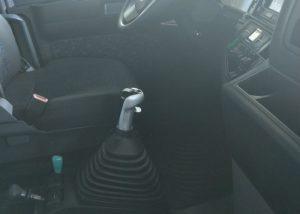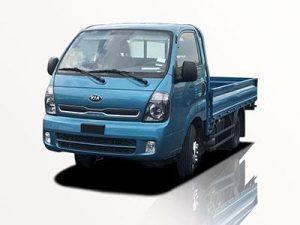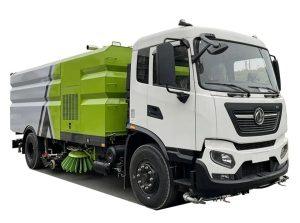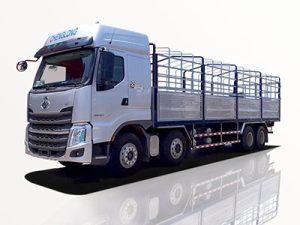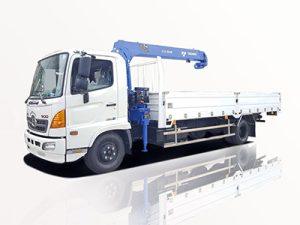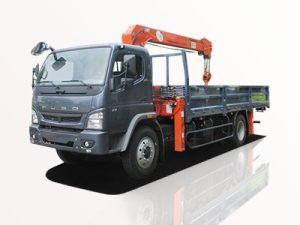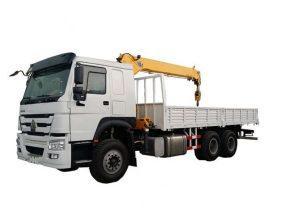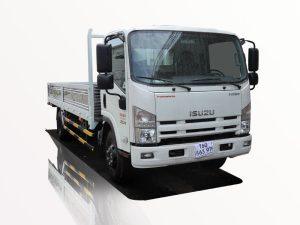Monday to Saturday - 8:00 -17:30
Choosing a Crane Carrier Dealer: Everything You Need to Know
When it comes to construction and heavy lifting, a crane carrier is an essential piece of equipment. Whether you are in the market for a new crane carrier or considering the purchase of used equipment, finding the right crane carrier dealer can make all the difference. This article will guide you through understanding what a crane carrier is, the importance of choosing the right dealer, and the considerations to keep in mind when shopping for one.
What is a Crane Carrier?
A crane carrier, often referred to as a truck-mounted crane or boom truck, combines a truck chassis with a crane. This powerful machine is designed for construction sites and heavy-load transportation, making it invaluable for various industries.
Types of Crane Carriers
Understanding the different types of crane carriers available in the market can help you make an informed decision when selecting a dealer.
- Truck-mounted Cranes: These cranes are mounted on the rear of a truck chassis and are typically used for lifting and moving materials.
- All-Terrain Cranes: Known for their versatility, these cranes can operate on various surfaces, making them ideal for construction sites that may not have solid ground.
- Crawler Cranes: These cranes have tracks instead of wheels, providing stability and allowing them to traverse uneven terrain.
- Rough Terrain Cranes: Designed for outdoor construction projects, these cranes can easily navigate rough surfaces while maintaining high lifting capabilities.
Why Choose a Crane Carrier Dealer?
Working with a reputable crane carrier dealer has multiple benefits, including access to high-quality equipment and expert support. Here are some reasons why selecting the right dealer matters:
Expertise and Knowledge
Reputable dealers have extensive knowledge of crane carriers and can offer valuable advice on which model suits your requirements best. Their experience can help you choose equipment that meets your project’s specific demands.
Quality Assurance
Dealers usually represent trusted brands and are more likely to offer quality products. They conduct thorough inspections and may provide warranties, ensuring you’re making a sound investment.
Post-Purchase Support
A good crane dealer will not only sell you the equipment but also provide maintenance, parts, and service after the sale. This ongoing support is crucial for the longevity of your equipment.
How to Identify a Reliable Crane Carrier Dealer
Not all dealers are created equal. Here are some tips to identify a reliable crane carrier dealer:
Research the Dealer’s Reputation
Look for reviews and testimonials from past customers. Websites like Google, Yelp, and industry-specific forums can provide insights into the dealer’s reputation.
Check Certifications and Licenses
Ensure that the dealer is licensed and certified to sell crane equipment. This guarantees that they adhere to industry standards and regulations.
Evaluate Customer Service
Contact the dealer to gauge the quality of their customer service. Prompt responses, knowledgeable staff, and willingness to assist can be good indicators of a reliable dealer.
Factors to Consider When Buying a Crane Carrier
When selecting your crane carrier, various factors should influence your decision. Here are the key aspects to consider:
Load Capacity
Different jobs require different load capacities. Assess the maximum weight you’ll need to lift, as each crane carrier model has its specifications.
Reach and Height
The crane’s boom reach and height are important for accessing hard-to-reach areas. Determine the maximum height and distance you’ll need to work efficiently.
Operating Environment
Your choice will depend on where you plan to operate your crane. Different models excel in diverse conditions—some might perform better on rough terrain, while others are designed for urban settings.
Cost and Financing Options
Evaluate your budget and consider financing options that may be available through the dealer. It’s essential to know if the price includes additional costs such as maintenance, warranties, and service agreements.
Maintaining Your Crane Carrier
Once you have purchased a crane carrier, maintaining it is crucial for safety and performance. Here are some practical maintenance tips:
Regular Inspections
Establish a routine inspection schedule to check for signs of wear and tear. Inspect the crane’s components, including the boom, hooks, and hydraulics.
Keep It Clean
Regular cleaning can help mitigate rust and dirt build-up. Ensure that the hydraulic components are free from grime that can interfere with performance.
Maintenance Checklist
| Inspection Item | Frequency |
|---|---|
| Hydraulic Fluid Levels | Daily |
| Mechanical Connections | Weekly |
| Brake Systems | Monthly |
| Wire Ropes | After Every Use |
Cost-Effectiveness of Purchasing vs. Renting
Deciding between purchasing and renting a crane carrier depends on various factors. Here’s a breakdown to help you decide:
Purchasing Benefits
- Long-term Cost Savings: Owning your crane can save money over time, especially for regular use.
- Customization: You can modify a purchased crane to better suit your needs.
- Asset Compliment: It adds value as an asset to your business.
Renting Benefits
- Flexibility: Renting allows you to switch models based on your current project.
- No Maintenance Costs: Rental companies handle maintenance, reducing your overall expenses.
- Tax Deductions: Often, rental payments can be deducted as business expenses.
Financing Options for Buying Crane Carriers
Financing can ease the burden of purchasing a crane carrier. Here are some common financing options:
Leasing
Leasing agreements can be beneficial for businesses that want lower monthly payments and flexibility to upgrade their equipment.
Bank Loans
Traditional bank loans can provide the necessary capital for buying a crane carrier, allowing you to spread the cost over several years.
Manufacturer Financing
Some manufacturers offer financing solutions directly, which can provide tailored loans and competitive interest rates.
Frequently Asked Questions (FAQs)
1. What should I look for in a crane carrier dealer?
Look for a dealer that has a solid reputation, extensive experience, excellent customer service, and comprehensive support services.
2. How do I determine the right load capacity for my crane carrier?
Assess your project’s requirements and the maximum weight of loads you expect to lift. Refer to the crane’s specifications to ensure it meets your needs.
3. Can I rent a crane carrier instead of purchasing one?
Yes, many dealers offer rental options suitable for those who need a crane for a short period or want to try before they buy.
4. What maintenance is required for a crane carrier?
Routine inspections, cleaning, lubricating moving parts, and checking vital fluid levels are essential for maintaining a crane carrier’s performance and safety.
5. Are there financing options available for purchasing crane carriers?
Yes, common financing options include leasing, bank loans, and financing directly from manufacturers.
6. What should I do if I encounter issues after purchasing a crane carrier?
Contact your dealer for support, as they should provide maintenance and repair services as part of their customer service commitment.


